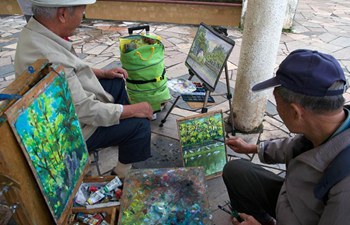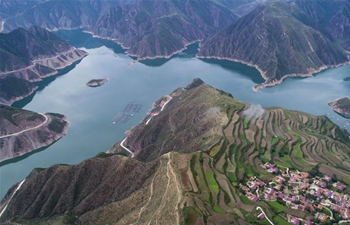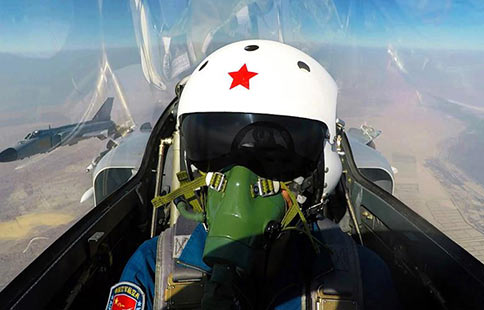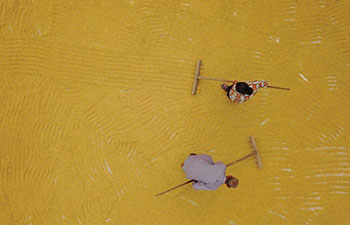ISTANBUL, Sept. 9 (Xinhua) -- The tea houses in a fishing town in northern Istanbul were crowded with Turkish fishermen in the mornings in September, when they usually should have been busy on the sea as the fishing season just began.
To the fishermen in Rumeli Kavagi at the northern mouth of Istanbul's Bosphorus Strait linking the Marmara Sea and the Black Sea, their disappointment resulted from the sharp decline in fish stocks due to overfishing.
Fishing is the sole source of income for most residents in the town, which has been a major supplier of fish to Istanbul and other cities in the region.
After five months of ban on fishing, fishermen in the town set sail again last week with high hopes. First they were cheerful when they caught some mackerel 40 years after this species almost disappeared from the Black and Marmara Seas, a sign they took as an abundance of others.
Their happiness did not last long, however.
The abundance in mackerel in the first week ended quickly, and a kilo of mackerel now costs as much as 12 U.S. dollars, against expected dramatic drop in price in a fruitful season.
The same was true for other species. For one, bonito, which has not appeared in plenty this year, sells for about 6 dollars each, up from 2 dollars last year.
Now the fishermen prefer not to sail out but wait instead for more fish to enter the Marmara Sea.
"There is no single positive sign in the sea this season," said Omer Lutfu Bayraktar, head of Rumeli Kavagi Aquaculture Association. "No bonito, no whiting, no bluefin."
Fishermen are blaming the scarcity on too many boats equipped with electronics, illegal netting and overfishing.
Ahmet Esen, 70, was celebrating his 53th year in the profession. He is not actively fishing anymore, but making salted tuna and dried mackerel and selling them to restaurants for the last couple of years.
"The authorities should strictly ban the use of sonar and lighting which prevent the reproduction of fishes," Esen said in a tea house while chatting.
"Mackerel, for example, enter the Marmara Sea from Dardanelles Strait on their route to the Black Sea where they reproduce," Esen explained. "But most of them get caught by the poachers with the help of electronic technology soon after they pass the Dardanelles."
In Esen's view, if the fishermen let the mackerel go, there would have been plenty of them as well as some other fish like bonito, bluefin tuna and sword fish.
"We used to browse the fish with our own eyes," said another fisherman, who was repairing his small fishing boat to make it ready for sail next week.
"Look at those big boats, all equipped with high electronic technology and the fishermen can find fish without moving their heads up from their seats," the man noted.
In his opinion, the use of sonar and other electronics should be allowed only in open seas and oceans, but not in inland seas like the Black and Marmara Seas.
Turkey's Ministry of Food, Agriculture and Livestock reported about over 85,000 inspections in 2016, which led to a total of 2 million dollars in administrative fine on those engaged in illegal fishing and confiscation of more than 750 tons of sea products.
"Despite these controls, we have observed that very few fishermen obey the rules this year," said Esen.



















